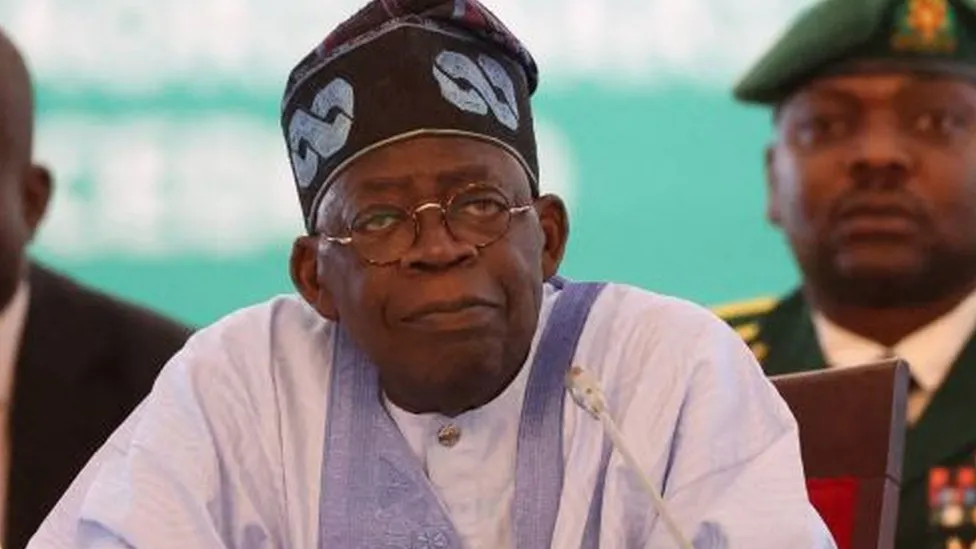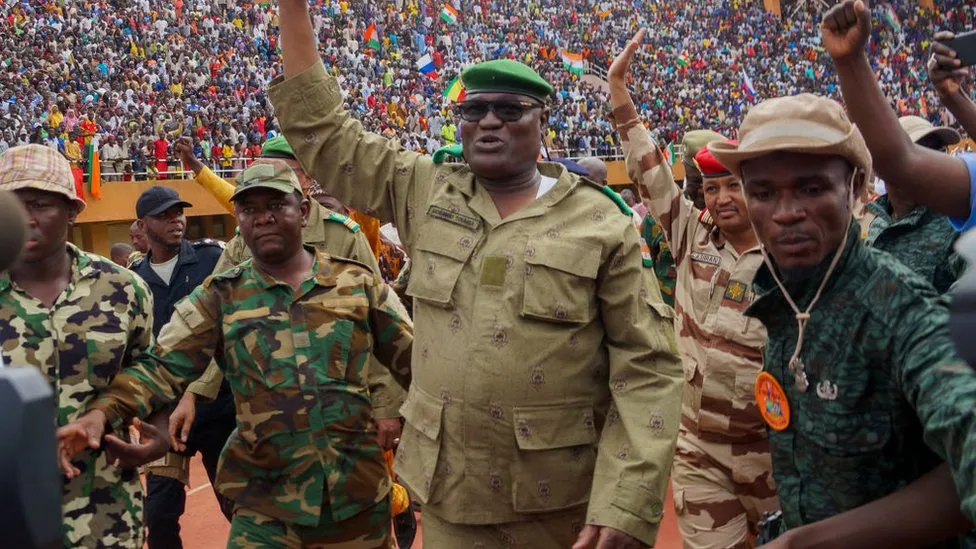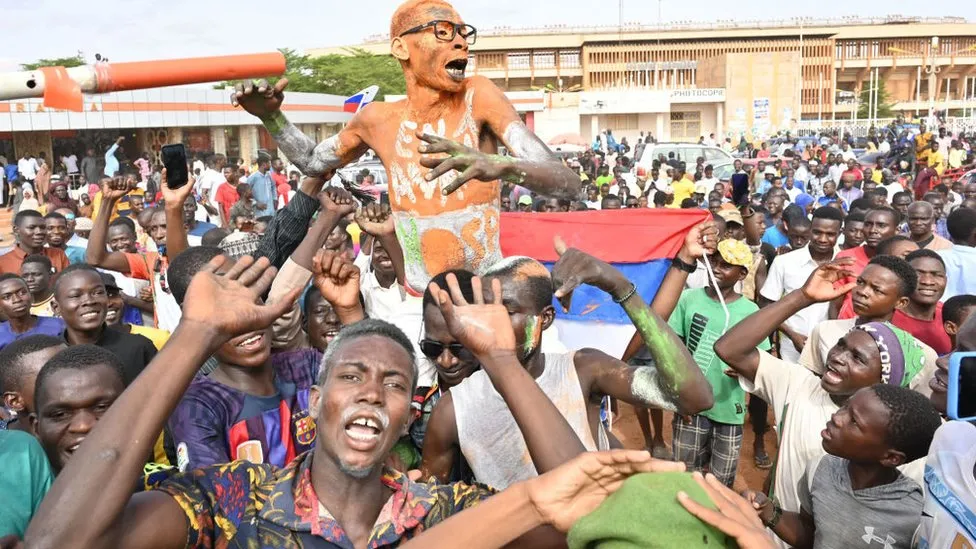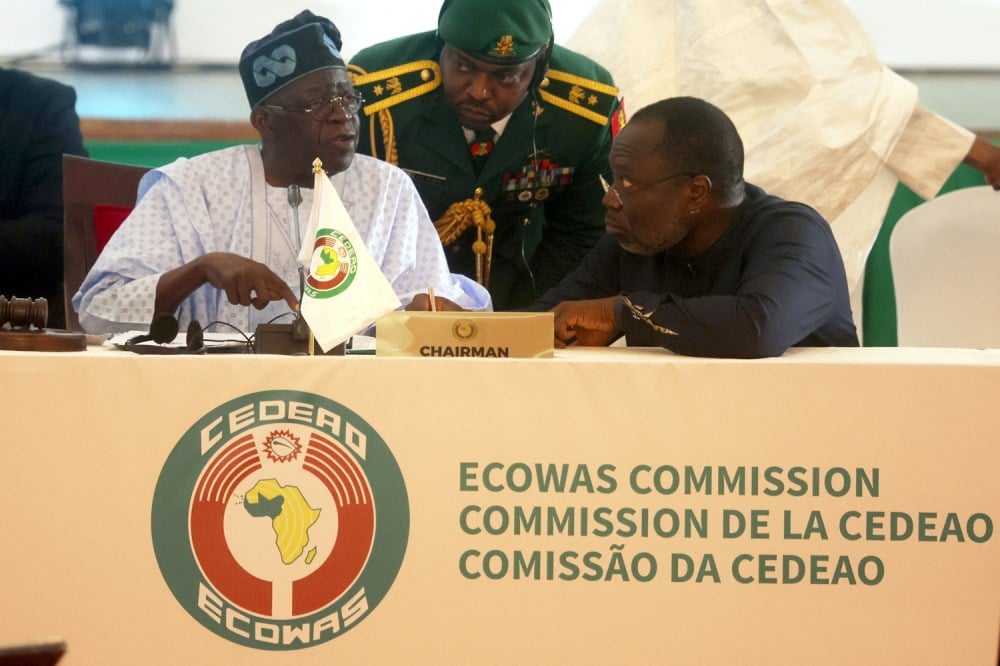
ECOWAS Orders ‘Standby Force’ to Niger
Africa’s strongest regional bloc risks looking weak in the face of rising junta support.
Africa’s strongest regional bloc risks looking weak in the face of rising junta support.
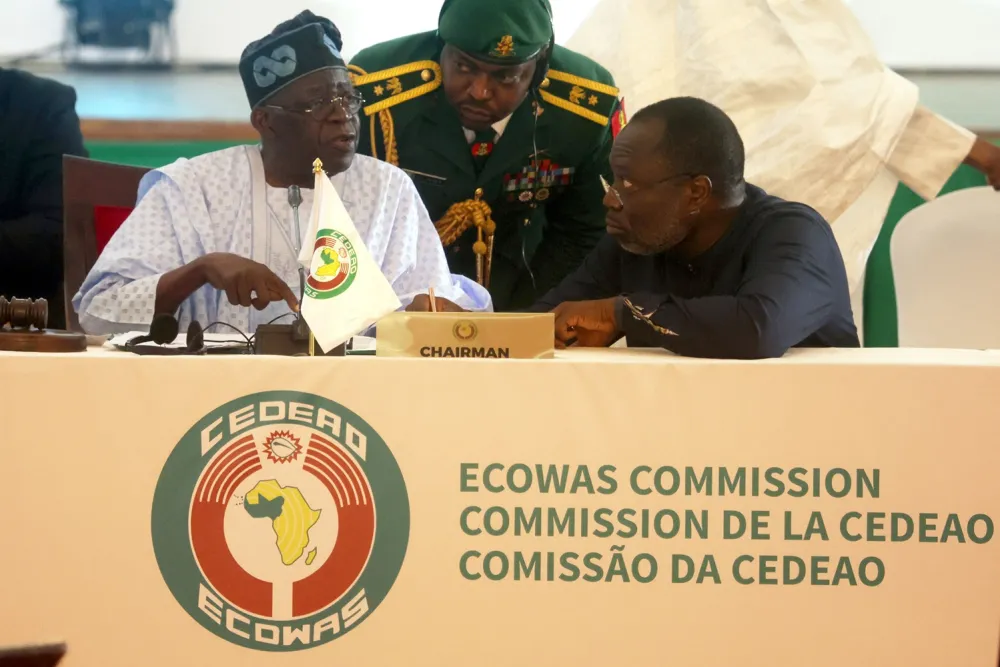
Nigerian President Bola Tinubu (left), chair of the Economic Community of West African States (ECOWAS), interacts with ECOWAS Commission President Omar Touray during the bloc’s extraordinary session in Abuja, Nigeria, on Aug. 10.
Saving Face
The Economic Community of West African States (ECOWAS) said on Thursday that it had ordered the deployment of a “standby force” to Niger to restore constitutional order. What that force will entail, though, is still unclear. No timeline or other specifics were given. The announcement came after the bloc convened an emergency meeting in Abuja, Nigeria, to discuss the crisis in Niger and its previous threat of militarily intervening if the coup’s leaders did not reinstate Nigerien President Mohamed Bazoum by last Sunday.
Sending troops into a member nation would be an significant move for the bloc, one that Nigerian President Bola Tinubu, who chairs ECOWAS and supports intervention, has called a last resort. Niger’s junta has warned that it will kill Bazoum if any attempt is made to restore him to power via military intervention. But drastic action is looking more and more likely, especially after United Nations Secretary-General António Guterres called for the immediate release of Bazoum and his family, who are being held in the presidential palace with limited food and no electricity.
On Wednesday, Nigeria’s former central bank governor, Sanusi Lamido Sanusi, met with coup leaders in Niamey to begin talks. But the junta appeared unwilling to budge without first receiving major concessions, including easing sanctions on the military regime to allow medicine and food to enter the country as well as forcing Nigeria to restore electricity to Niger.
But catering to junta demands and looking wishy-washy over its threat of military intervention is not a great look for the regional bloc. ECOWAS has long been considered “the strongest, the toughest, the most organized of all of these regional bodies” in Africa, said Cameron Hudson, a senior associate at the Center for Strategic and International Studies. Yet its history as a prevention-oriented body instead of a crisis-response one is affecting its ability to respond to the Niger situation. ECOWAS is “not NATO,” Hudson said. “It’s not built on 80 years of experience in a host of countries that all have a similar level of the rule of law. ECOWAS is as strong or as weak as the person who is chairing ECOWAS.”
Meanwhile, Niger’s coup leaders announced their new cabinet on Monday. Ali Mahaman Lamine Zeine, a civilian economist, will lead the junta as prime minister. Twenty-one ministers will serve under him, including three military generals as the ministers of defense, interior, and sports. No Nigerien representative, nor the leaders of Mali, Burkina Faso, and Guinea—who all sided with Niger’s junta—attended Thursday’s ECOWAS meeting.



